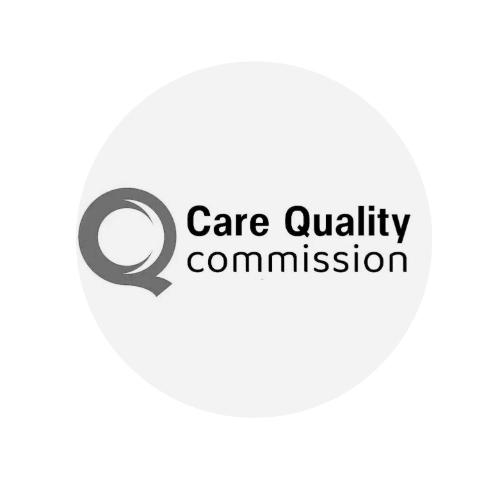What Is Alcohol Dementia?

Dementia comes in many forms, as it is an umbrella term used to describe degenerative conditions impacting cognitive functioning. Alcohol dementia is one type of dementia, and it accounts for approximately 10% of young-onset cases.
While branded as “dementia”, it can be quite different from the other forms of the condition. Notably, because it isn’t always guaranteed to progress.
At LuxuryCare, we are dementia care specialists with knowledge and experience in the majority of dementia types, including alcohol-related dementia. Our bespoke care plans ensure your loved one receives the right level of care for their needs while remaining as independent as possible, and our activities programme keeps them busy and socialising.
In this blog, we have created an ultimate guide to this form of dementia so you have somewhere to turn to for all the information you need.
What Is Alcohol-Related Dementia?
Alcohol dementia is a type of alcohol-related brain damage (ARBD) that affects a person’s ability to complete day-to-day tasks.
Drinking excessively over an extended period can cause brain damage, which can lead to symptoms similar to those experienced by those living with Alzheimer’s, vascular dementia or other forms of progressive disease.
The impact of the damage to the brain can inhibit their brain functionality, meaning they suffer from memory loss, poor judgement and can struggle to think things through.
There are several terms used to describe this condition, which are used interchangeably:
- Alcohol-induced dementia
- Alcoholic dementia
- ARD
- Alcohol-related brain damage (ARBD)
One of the notable points of alcohol dementia, as mentioned above, is that it isn’t always progressive.
If the right treatment is actioned and support put in place, the damage and symptoms can stop getting worse and in some cases, improve.

Symptoms of Alcohol-Related Dementia
Symptoms of alcohol dementia can often be similar to those noticed for other types of dementia:
- Difficulties staying focused on a task
- Struggling with problems, planning and organising
- Issues with setting goals
- Poor judgement and decision-making
- Lack of motivation to do tasks or activities
- Inability to control emotions
- Problems with understanding how others are thinking or feeling
- Inability to understand new information or retain details
- Instability on their feet, even when sober
As this condition is caused by damage to the brain, the symptoms are more cognitive, so you might not see it impact mobility and physicality like other forms of dementia.
How Alcohol Affects the Brain
So, what is the damage to the brain that causes this?
Large and regular quantities of alcohol can have various impacts on the brain:
- Loss of brain cells in critical areas for memory loss and decision-making
- Thiamine (vitamin B1) deficiency contributing to cognitive decline
- Disrupted neurotransmitter function that affects mood and cognition
- Alcohol-related brain damage
Alcohol Dementia vs Other Types of Dementia
There are several comparisons between alcohol dementia and other forms of the condition.
Primary cause
Alcohol Dementia: Excessive alcohol consumption, leading to brain damage.
Other Types of Dementia: Accumulation of plaques and tangles in the brain. Vascular: Reduced blood flow to the brain.
Memory impact
Alcohol Dementia: Short-term memory is less affected.
Other Types of Dementia: Short-term memory is typically one of the earliest and most severely impacted areas.
Decision-Making & Behaviour
Alcohol Dementia: Significant impact on decision-making and social behaviour.
Other Types of Dementia: May affect decision-making and behaviour, but these changes often occur later in progression.
Reversibility
Alcohol Dementia: Potentially reversible with abstinence, proper nutrition, and care.
Other Types of Dementia: Irreversible; progression can only be slowed through treatment and management.
Progression
Alcohol Dementia: May stabilise or improve if alcohol use stops and interventions are successful.
Other Types of Dementia: Progressive and degenerative; symptoms worsen over time.
Treatment Approach
Alcohol Dementia: Focuses on lifestyle changes, nutritional support (e.g., thiamine), and cognitive therapy.
Other Types of Dementia: Symptom management through medications (e.g., cholinesterase inhibitors) and supportive care.
Age of Onset
Alcohol Dementia: Often occurs earlier (middle-aged adults).
Other Types of Dementia: Typically develops in older adults (65+ years).
Prevention
Alcohol Dementia: Avoid excessive alcohol consumption; maintain proper nutrition.
Other Types of Dementia: Risk reduction through heart-healthy lifestyle, regular cognitive engagement, and managing chronic conditions.
Reversing or Managing Alcohol-Related Dementia
Unlike other forms of dementia, the progression of this type can be halted or even stopped with the right treatment at the right time.
An early diagnosis is key for this, and treatment will focus on lifestyle changes, such as:
- Stopping alcohol consumption
- Nutritional rehabilitation – specifically thiamine supplementation
- Cognitive therapies and mental exercises to rebuild brain function
However, it is important that these strategies are implemented by a professional dementia care facility or specialist. This ensures the actions are appropriate for the level of damage done and rehabilitation is carried out effectively.
The Role of High-Quality Dementia Care
Quality and specialist dementia care, such as those provided by LuxuryCare, are important for alcohol dementia for several reasons.
- Specialised care plans in place
- Comfortable and supportive environments improve quality of life
- Medical professionals and therapists are often available and trained in dementia care
At LuxuryCare, all our care homes are specialist dementia care homes that offer comprehensive care and support to your loved one living with alcohol-related dementia.
Each resident receives a bespoke care plan that will reflect the level of care they need. This ensures that we don’t over-help them so they can maintain their independence. This is imperative for alcohol dementia because it allows us to put in place treatments and therapies that can prevent their condition from getting worse.
All our homes in Poole and Bournemouth have been designed with dementia in mind, meaning even with short-term memory loss, your loved one will be able to navigate their way around the home without help, thanks to our visual cues, signage and bright colours.
Lifestyle changes are at the heart of treating alcohol-related dementia, and our care homes are the perfect place to implement these. Our in-house chefs provide nutritious and delicious home-cooked meals full of all the nutrients your loved one needs. Plus, we have a varied activities programme full of fun, engaging and stimulating games and activities, all adjusted to your loved one’s abilities. These can often form part of their therapy, as we introduce music, gardening and animal therapy into our programmes.
If you are interested in the care we can provide your loved one living with alcohol dementia, book a visit to your local care home by calling 01202 037373 or complete our online contact form.
Other Helpful Resources:















